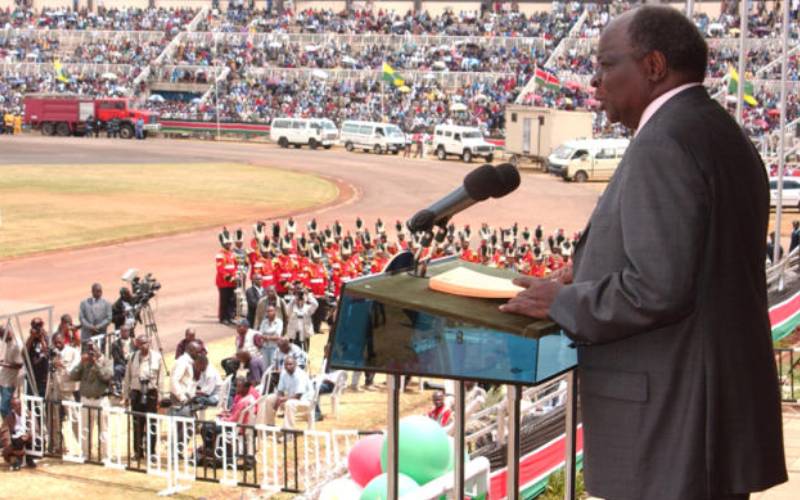×
The Standard e-Paper
Smart Minds Choose Us

In presiding over their last public functions, Kenya’s outgoing presidents have had a tendency of vouching for political stability while hinting at their preferred successors. And yesterday, President Uhuru Kenyatta was not any different.
Speaking at Nairobi’s Uhuru Gardens during the commemoration of the 59th anniversary of Kenya’s self-rule, the President left no doubt in the minds of Kenyans on where his heart really lies in the presidential poll that is 68 days away.